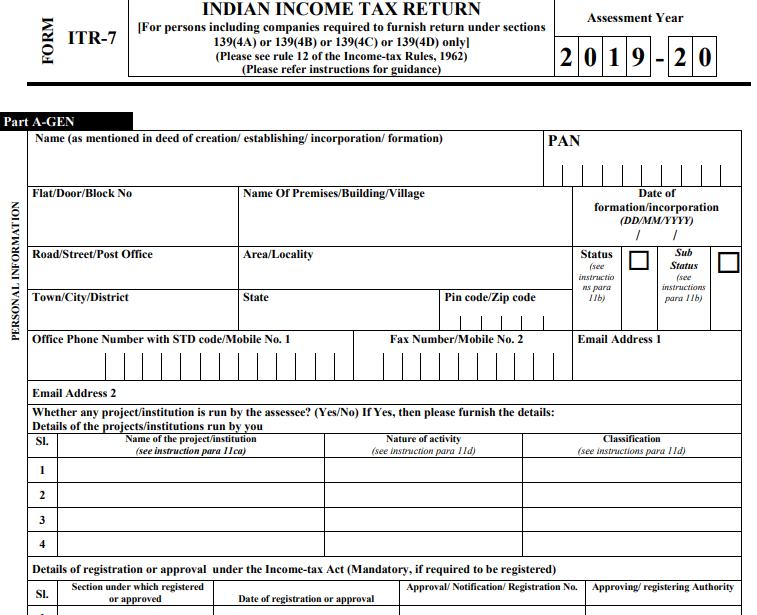7 Things to Look Forward with India’s 76th Independence Day
As India stands on its 76th Independence Day threshold, the air is filled with a profound sense of reflection, pride, and anticipation. This annual celebration, which marks the nation's liberation from colonial rule, is more than a mere commemoration; it is evidence to the resilience, sacrifice, and unwavering spirit of a diverse and vibrant nation. It’s been 76 years since the tricolour flag was unfurled, signalling the birth of a sovereign nation that would rise to become one of the world's largest democracies. Monumental steps, reflective transformations, and a relentless pursuit of progress have marked the journey from that historic moment in 1947 to the present day.

This annual celebration not only remembers the sacrifices of our forefathers but also serves as a poignant reminder of the progress we've made and the promising future ahead. This article will explore seven things to look forward to as we mark this significant milestone on our journey toward a brighter India.
7 Things to Look Forward on 76th Indian Independence Day
All these years post-independence, the nation has undergone massive transformations and revolutions. Here are some of the things Indians should be looking forward to:
Digital Transformation and Innovation
Since India's independence in 1947, the country has experienced significant digital transformation and innovation changes across various sectors. India's technological ability can potentially elevate the nation to new heights. With advancements in artificial intelligence, biotechnology, and renewable energy, we can anticipate a tech-savvy India at the forefront of innovation and digital transformation. Embracing cutting-edge technologies will create opportunities for Economic Growth, improved governance, and enhanced quality of life for all citizens. The future of digital transformation and innovation in India holds great promise, with several trends and opportunities expected to shape the country's technological landscape, such as:
5G Technology: The widespread adoption of 5G technology will revolutionise communication, enabling faster data speeds and low latency. This will lead to advancements in healthcare, Manufacturing, smart cities, and autonomous vehicles.
Artificial Intelligence (AI) and Machine Learning (ML): India will likely see increased integration of AI and ML across various sectors, including healthcare diagnosis, personalised education, predictive analytics, and customer service automation.
Internet of Things (IoT): The IoT ecosystem will expand, connecting devices and enabling data-driven decision-making. Smart homes, smart agriculture, and industrial IoT applications will gain traction.
Digital Healthcare: Telemedicine and remote healthcare solutions are expected to grow, ensuring improved access to medical services, especially in rural and remote areas. Wearable health tech and AI-driven diagnostics will play a pivotal role.
Digital Payments and Fintech: The digital payments ecosystem will mature with further adoption of digital wallets, contactless payments, and blockchain-based solutions. Fintech innovations will also address Financial Inclusion and lending accessibility.
Talk to our investment specialist
Empowerment of Youth and Education
The youth of India is a formidable force that holds the key to the country's future. Investing in quality education, skill development, and entrepreneurship will empower young minds to shape the nation's destiny. The future generation will be filled with innovators who will contribute to the nation's progress and international standing. The future of youth and education empowerment in India holds immense potential to shape the country's socio-economic development and global standing. Here are some key trends and areas of focus that could contribute to this future:
Skill Development and Vocational Training: As the job Market evolves, there will be an increased emphasis on skill-based education and vocational training. Initiatives that align education with Industry requirements will empower youth to enter the workforce with relevant skills.
Entrepreneurship and Start-up Ecosystem: Entrepreneurial education and support for start-ups will nurture a culture of innovation and self-employment.
International Collaboration: Increased collaboration with global educational institutions and exposure to international education standards will provide Indian youth with a broader perspective and opportunities for academic and professional growth.
Digital Literacy and IT Skills: As technology becomes more pervasive, promoting digital literacy and IT skills among the youth will be crucial for their participation in the digital Economy.
Youth Engagement and Participation: Encouraging involvement in decision-making, community service, and social initiatives will foster a sense of responsibility and active citizenship.
Sustainable Development and Environmental Conservation
India's commitment to sustainable development and environmental conservation is a source of optimism. The nation's initiatives to combat climate change, promote renewable energy, and protect our natural resources signal a greener and more eco-conscious India. The future of sustainable development and environmental conservation in India is paramount as the country strives to balance economic growth with environmental protection. Several trends are likely to shape India's efforts in this direction, like:
Renewable Energy Expansion: India has set ambitious targets for increasing its renewable energy capacity, particularly solar and wind power. Investments in renewable energy infrastructure, research, and technology will drive the transition toward a cleaner energy mix.
Electric Mobility: Adopting Electric Vehicles (EVs) will reduce air pollution and dependence on fossil fuels. Government incentives, EV charging infrastructure development, and increased manufacturing of EVs will contribute to this shift.
Afforestation and Biodiversity Conservation: Reforestation and afforestation efforts will help restore ecosystems, conserve biodiversity, and mitigate climate change. Conservation of native species and habitats will be prioritised.
Climate Resilience and Adaptation: India will continue to develop strategies and infrastructure to adapt to the impacts of climate change.
Rural Development and Livelihoods: Empowering rural communities with sustainable livelihood options, such as organic farming and agroforestry, will reduce pressure on natural resources and promote economic well-being.
Inclusive Growth and Social Equity
The pursuit of social equity and inclusive growth continues to be a cornerstone of India's progress. The expansion of social welfare programs, improved access to healthcare, and the promotion of gender equality are all promising signs of a nation that values the well-being and rights of all its citizens. The future of inclusive growth and social equity in India is crucial for achieving sustainable and balanced development that benefits all segments of society. Here is what we can expect in this domain in a few years:
Digital Inclusion: Expanding access to digital technologies and internet connectivity will bridge the digital divide, ensuring that remote and underserved communities can access information, education, and economic opportunities.
Women's Empowerment: Fostering gender equality through education, access to healthcare, economic opportunities, and legal protections will empower women to play a more active role in society and the economy.
Healthcare Access: Expanding access to affordable and quality healthcare services, will improve public health outcomes and reduce health disparities.
Social Safety Nets: Strengthening social safety net programs, such as food security initiatives, cash transfers, and healthcare subsidies, will provide a safety net for vulnerable populations.
Tribal and Indigenous Rights: Protecting the rights and livelihoods of tribal and indigenous communities, respecting their cultural heritage, and involving them in decision-making processes will contribute to social equity.
Cultural Diversity and Heritage Preservation
India's rich cultural tapestry is a source of national pride and global admiration. Preserving our cultural heritage while embracing modernity allows us to celebrate our diversity and showcase our traditions to the world. The coming years promise a thriving cultural landscape that bridges the gap between our historical roots and contemporary aspirations. Some major future trends in this domain are:
Digital Preservation: Technological advancements, such as digital archiving and virtual reality, will enable the preservation and documentation of cultural artifacts, historical sites, and traditions for future generations.
Community Engagement: Involving local communities in heritage preservation will ensure their knowledge, traditions, and practices are respected and integrated into conservation initiatives.
Cultural Education: Integrating cultural education into school curricula will foster a sense of pride and awareness among younger generations about their cultural heritage.
Cultural Festivals and Events: Organising cultural festivals and events will celebrate diversity and provide platforms for different communities to showcase their traditions.
Intergenerational Transmission: Encouraging dialogue and interaction between generations will facilitate the transfer of knowledge, stories, and traditions from elders to younger community members.
Global Leadership and Diplomacy
India's growing influence on the global stage is a witness to its diplomatic acumen and economic expertise. The future of global leadership and diplomacy for India holds significant potential as the country strives to enhance its role on the world stage. Through proactive and strategic diplomacy, India can be more influential in shaping global agendas, addressing transnational challenges, and contributing to a more multipolar and interconnected world.
Geopolitical Influence: India's growing economic and strategic importance will position it as a key player in global geopolitics. Strategic partnerships with major powers and active participation in international forums will further elevate India's influence.
Global Governance and Multilateralism: India's engagement in multilateral organisations such as the United Nations, G20, BRICS, and regional forums will enable it to contribute to global governance, shape international norms, and address pressing global challenges.
Technology and Innovation Diplomacy: India's prowess in technology and innovation will be leveraged for international collaboration in space exploration, cybersecurity, artificial intelligence, and digital governance.
Security and Counterterrorism Cooperation: India's active involvement in regional and global security initiatives will contribute to counterterrorism efforts, maritime security, and stability in conflict-prone regions.
Trade and Investment Partnerships: Bilateral and regional trade agreements will deepen economic ties with key partners, expanding market access and enhancing India's economic clout.
Healthcare Advancements and Resilience
Advances in medical research, healthcare infrastructure, and pandemic preparedness will contribute to a healthier and more resilient nation. With the promise of improved healthcare facilities and disease management, we can anticipate a brighter and healthier future for all citizens. Here are some significant trends of this domain:
Healthcare Infrastructure: Investments in healthcare infrastructure, including hospitals, clinics, and medical facilities, will strengthen the capacity to provide quality care, particularly during emergencies.
Genomic Medicine: Advances in genomics will lead to personalised medicine, where treatments and interventions are tailored to an individual's genetic makeup, improving treatment outcomes, and reducing adverse effects.
Epidemic Preparedness and Public Health: Strengthening public health systems, surveillance, and early detection mechanisms will improve India's ability to manage and mitigate the impact of epidemics and pandemics.
Mental Health Care: Increased awareness and investment in mental health services and support will address India's growing mental health challenges.
Health insurance and Financial Protection: Expanding health insurance coverage and social safety nets will provide financial protection to individuals and families, ensuring access to necessary healthcare services without financial hardship.
Conclusion
As we stand on the threshold of our 76th Independence Day, we reflect on our past achievements, acknowledge our present endeavours, and look forward to the possibilities ahead. The aspirations outlined above reflect a shared vision of progress, unity, and prosperity for India. The future of India holds immense promise and potential across various domains. As the country continues its journey toward development and progress, several key trends emerge. As we gaze toward the future, India's journey embodies resilience, innovation, and inclusivity. Nurturing these aspects will undoubtedly pave the way for a brighter and more prosperous India, solidifying its role as a dynamic and influential force on the global stage. Let us come together to celebrate our nation's journey, honour the sacrifices of our heroes, and embark on a future where India shines brightly on the global stage.
Happy 76th Independence Day!
All efforts have been made to ensure the information provided here is accurate. However, no guarantees are made regarding correctness of data. Please verify with scheme information document before making any investment.










